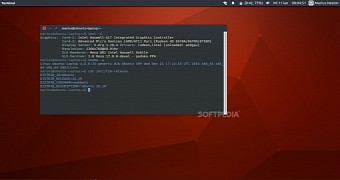Collabora's Emil Velikov is officially announcing today, January 11, 2017, that the upcoming Mesa 13.1.0 branch of the widely-used 3D graphics stack will change its versioning scheme to Mesa 17.0.0.
Those of you bleeding-edgers who are using the Mesa 3D Graphics Library from Git, a.k.a. the development (unstable) branch of the graphics stack used in numerous GNU/Linux distributions to provide various open-source drivers for Intel, AMD, and Nvidia graphics cards, should have already noticed the major change.
Mesa 13.1.0 is now known as Mesa 17.0.0 if you pull the latest code from Git, which the Padoka and Oibaf PPA do for Ubuntu 16.04 LTS (Xenial Xerus) and Ubuntu 16.10 (Yakkety Yak) platforms. It appears that the Mesa people decided to change the versioning scheme at the beginning of a new year, so now being 2017, here comes Mesa 17.0.0.
"Mesa versioning scheme will be going a small update. Namely, the major number will be bumped at the beginning of each year and shall reflect the last two digits of the respective year. I would like to thank Marek for the suggestion and everyone who took part in the related discussion," said Emil Velikov, Software Release Engineer at Collabora.
First Release Candidate of Mesa 17 slated for January 13 release
The release plan is already in place, and it looks like Mesa 17.0.0 will enter Feature Freeze in only two days from the moment of writing this article, on January 13, 2017, when you should also be able to get your hands on the first Release Candidate (RC) development build.
After that, there will be three more RC versions released. The second one is coming a week later, on January 20, and the third Release Candidate should be ready for public testing another week later, on January 27. The last Release Candidate and final release of Mesa 17.0.0 are currently slated for a February 3, 2017, release.
Mesa 17.0.0 promises major new features, such as OpenGL 4.2 support for Intel Haswell by implementing 64-bit vertex attributes, as well as SDMA ClearBuffer support and other related improvements to the RadeonSI driver for AMD Radeon graphics cards, improving the performance of the Deus Ex: Mankind Divided video game by up to 70 percent.

 14 DAY TRIAL //
14 DAY TRIAL //